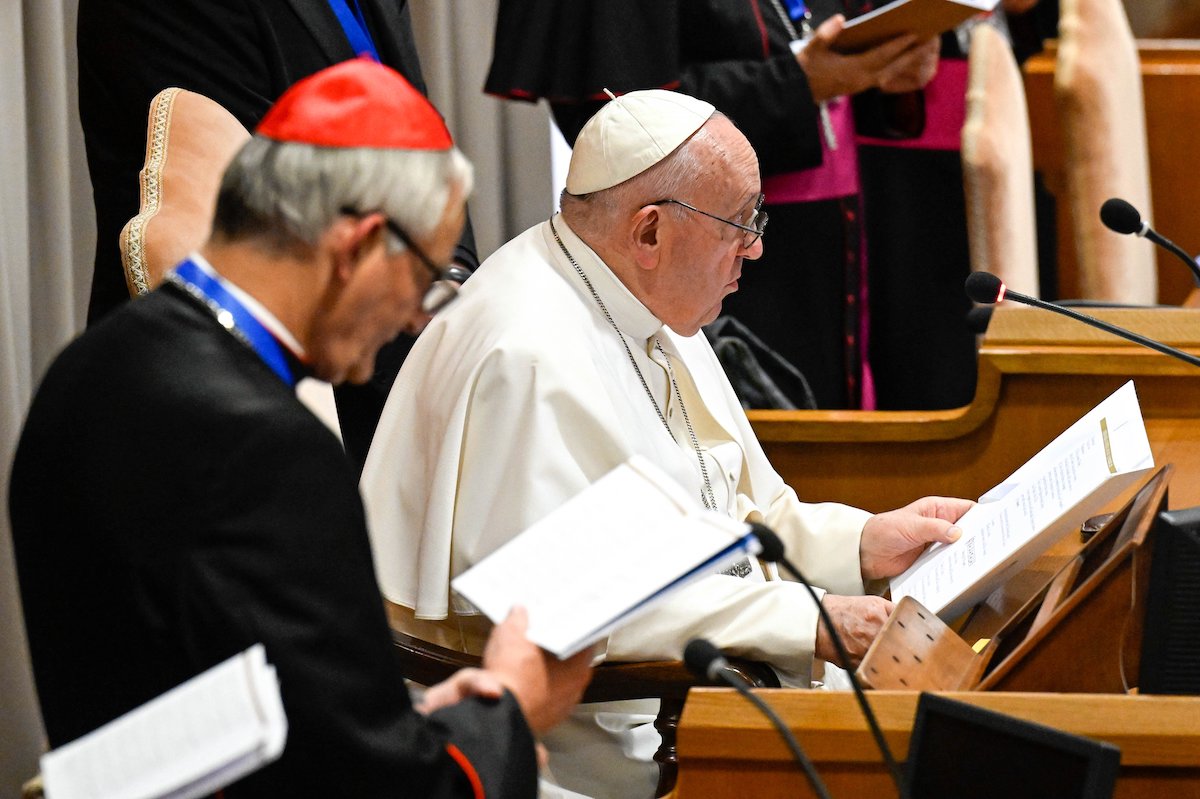By Cindy Wooden, Catholic News Service
VATICAN CITY (CNS) — “War is a pandemic. It involves us all,” said Cardinal Matteo Zuppi, the Italian prelate chosen by Pope Francis to lead an initiative for peace in Ukraine.
The cardinal, who is archbishop of Bologna and president of the Italian bishops’ conference, spoke about the need for peace in Ukraine when he gave the presidential address at the Italian bishops’ spring meeting at the Vatican May 23.
But he did not speak about Pope Francis choosing him to lead a mission “to help ease tensions in the conflict in Ukraine,” as the Vatican press office announced May 20 without providing further details.
The pope, according to Vatican News, spent three hours listening to and responding to questions from the Italian bishops late May 22. While the session was held behind closed doors, Vatican News reported that the war in Ukraine and the need for peace were among the topics discussed.
The next morning, in a speech that addressed many topics of concern to the Italian bishops, Cardinal Zuppi included peace, “one of the concerns Pope Francis has always presented to us in recent years, recently to the point of emotion — peace, today especially in Ukraine with its ‘tormented people.'”
The cardinal described the pope’s prayers and words about the war as prophetic because, the cardinal said, his defense of Ukraine is “so rare today when talking about peace seems to avoid taking sides or failing to acknowledge responsibility.”
Pope Francis’ “voice takes on the deep, sometimes unexpressed, often unheard anxiety of peoples who need peace,” Cardinal Zuppi said, but “war is a pandemic” that involves not only the victims and aggressors. The war in Ukraine is having a huge impact on the rest of Europe and the rest of the world, particularly when it comes to a lack of grain shipments, questions about oil and gas and global alliances.
During the pope’s late April visit to Hungary, he asked, “Where are the creative peace efforts?” The cardinal told the bishops, “Let us be troubled by this question, lest only the ruthless logic of conflict remains.”
“For us, peace is not just a wish, but is the very reality of the church, which germinates — as the sign of peace — from the Eucharist and the Gospel,” the cardinal said. “The church and Christians believe in peace; we are all called to be peacemakers, even more so in the terrible storm of conflict.”
Welcoming Ukrainian refugees, he said, “is an act of peace.”
Making a commitment to praying for peace is also an act of peace, he said, calling Italian Christians “to fervent and insistent prayer for peace in Ukraine and that ‘all the peoples of the earth may be joined together and may flourish in them and always reign the most desired peace,'” as St. John XXIII wrote in “Pacem in Terris.”







